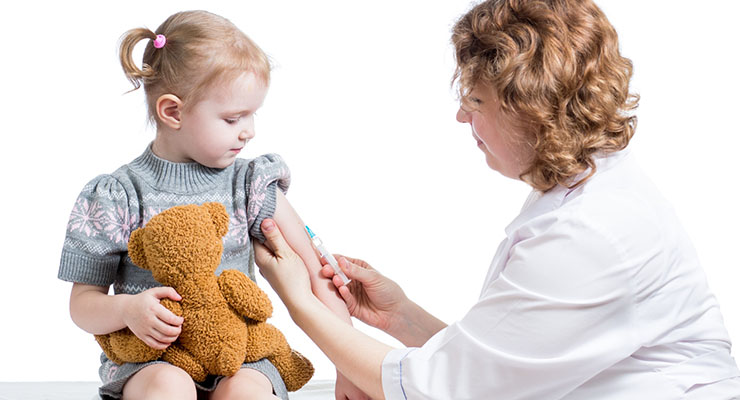Recent news (Blog)
Which vaccines should my child have?
- Hits: 2724
San José, Costa Rica. Abril, 2016.
 “Vaccines increase the danger of developing autism,” said the sister-in-law, who is continuously reviewing parent forums on the Internet….”There is no need to vaccinate your baby so much. One must allow a good diet and nature to follow their course,” says the school friend, who is immersed in the naturalistic trend…”Vaccines have many secondary effects,” says the brother, who still remembers how he reacted more than two decades ago to the measles vaccine.
“Vaccines increase the danger of developing autism,” said the sister-in-law, who is continuously reviewing parent forums on the Internet….”There is no need to vaccinate your baby so much. One must allow a good diet and nature to follow their course,” says the school friend, who is immersed in the naturalistic trend…”Vaccines have many secondary effects,” says the brother, who still remembers how he reacted more than two decades ago to the measles vaccine.
Listening to so many horror stories, it is not surprising that many parents have doubts about vaccination.
However, vaccines are actually safe. AsVirginia Jaén Murillo, admission nurse at the Clínica Bíblica Hospital explains, “Vaccines are suspensions made up of attenuated or dead micro-organisms that are introduced into the body to prevent and treat specific infectious diseases. Their function is to stimulate the creation of antibodies, with which one achieves an immunization (protection) against these diseases. They are regulated by the World Health Organization under strict processes of manufacturing, distribution and application.”
In fact, in our country there is a basic vaccination schedule of the Ministry of Health, which is mandatory. Therefore, it is not about suppressing vaccines based on rumors, but rather it is an elemental aspect for the welfare of the little ones.
Which vaccines should the child receive?
Children should be vaccinated from birth. During the first 24 hours, they should receive two vaccines and, until they become of age, there is a series of vaccination requirements which have to be complied with.
As Jaén Murillo explains, “the only counter-indication for the application of a vaccine is that the child has fever, is suffering from some infectious process or is taking antibiotic treatment. In these cases, the vaccination is postponed, but not suppressed entirely, unless there is an allergy to any of the vaccine components. Also, in some cases (depending on the vaccine), there are age restrictions for their application.”
Therefore, the vaccines that every person should receive until they are 18 years-old are:
- Tuberculosis.
- Haemophilus Influenzae type B.
- Hepatitis B.
- Diphtheria.
- Tetanus.
- Pertussis / Whooping cough.
- Pneumococcus.
- Influenza (flu).
- Measles-Rubella-Mumps.
- Chicken pox.
In addition, there are some optional vaccines:
- Hepatitis A.
- Human papilloma Virus.
- Rotavirus..
What is the care that one must have after vaccination?
According to Jaén Murillo, the care one must have with children after their vaccination is simple and includes “applying cold compresses or cold chamomile washcloths. If the pain is serious, you can give them some analgesic, but under no circumstance should you massage the puncture site.” It is essential, also, to have the vaccination booklet or log on hand and obey the instructions of the public entities with regard to vaccinations. /p>
With regard to secondary effects, it is common to have pain, or that the area where the vaccine was applied, reddens or swells. There can also be general discomfort and fever. In less frequent cases, vomits and nausea could appear, but it is not the norm.
With regard to secondary effects, it is common to have pain, or that the area where the vaccine was applied, reddens or swells. There can also be general discomfort and fever. In less frequent cases, vomits and nausea could appear, but it is not the norm.
Remember also that, if you have any doubts with regard to some vaccine, you can consult this with your attending physician and with the health staff.
In order to obtain further information or request an appointment in any of the medical specialties, please contact the private Hospital Clínica Bíblica at telephone number 2522-1000, by email at citas@clinicabiblica.com or via chat at the website: www.clinicabiblica.com

